Laying the foundation for integration from primary school
English has long been considered the key to integration, but learning a foreign language in high school often faces the situation of "learning for exams" rather than "learning for use". In that context, Ninh Binh's bold implementation of an English introduction program from primary school has created an important foundation for the new generation of students.
According to the 2024-2025 school year report, the whole province has up to 94,414 first and second graders voluntarily participating in English classes 2 periods/week.
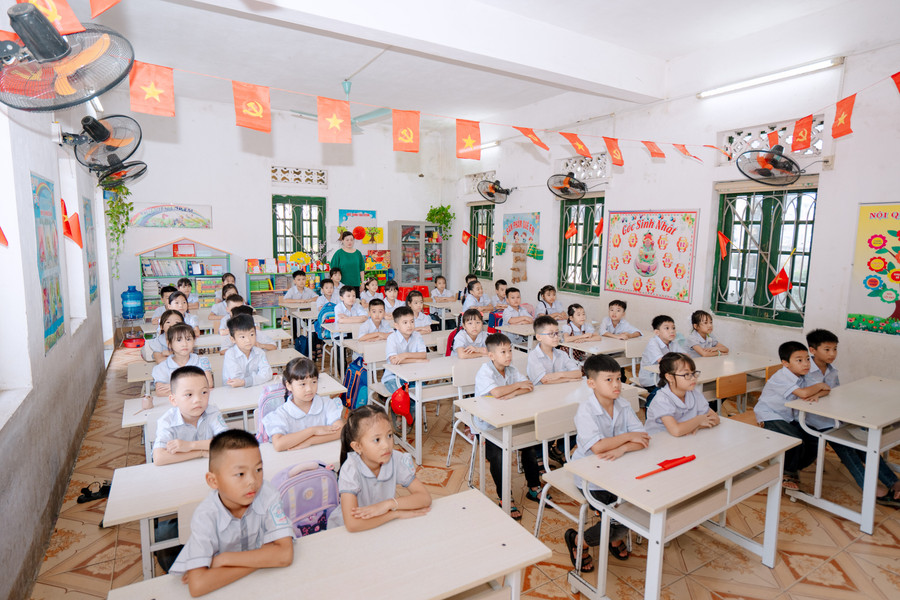
Students not only get acquainted with foreign languages through books but also participate in many useful playgrounds such as English Festival and international exchanges with students from India, Japan and Bangladesh.
Ms. Nguyen Thi My, Principal of Ninh Giang Primary School (Tay Hoa Lu, Ninh Binh) commented: “The most gratifying thing is that students no longer consider English a boring subject, but are interested in playing games, singing, and communicating in a foreign language. With the new financial mechanism from Resolution 71, the school can invest in more multi-purpose classrooms and invite native teachers to directly participate in teaching, making learning more lively and effective.”
Students are more confident through international playgrounds
Not only in regular school hours, Ninh Binh students have more and more opportunities to practice foreign language skills through diverse playgrounds. From the English Talent Olympiad for middle school, Conquer IELTS for high school, to speech competitions, STEM festivals in English, each activity opens up a lively practice environment.
Nguyen Trung Duc, a 12th grade student at Le Hong Phong High School for the Gifted ( Nam Dinh , Ninh Binh) said: “When I participated in the English speaking contest, I felt much more confident. In addition to speaking skills, I also learned how to work in groups, how to present ideas and debate. Those experiences helped me understand that English is not just about scores, but also a bridge to connect with international friends.”
The organization of a variety of extracurricular activities has turned English into a real communication tool, while arousing students' interest and confidence.
Innovating methods, aiming for English as a second language
For English to truly enter school life, the quality of the teaching staff is a key factor. Ninh Binh has organized many training courses, from teaching methods according to the 2018 General Education Program to applying IT in teaching. Notably, last school year, the Department of Education and Training deployed 8 training courses on applying artificial intelligence (AI) to support English speaking skills for both teachers and students.
Ms. Bui Thi Lan, English teacher at Ly Nhan Tong High School (Tan Minh, Ninh Binh) shared: “In the past, students were often afraid to communicate because they were afraid of making mistakes. But with AI tools, they can practice pronunciation at any time, receive immediate feedback and gradually become more confident. Innovating the financial mechanism according to Resolution 71 helps schools easily access modern equipment and software, while creating conditions for teachers to participate in many in-depth training courses.”
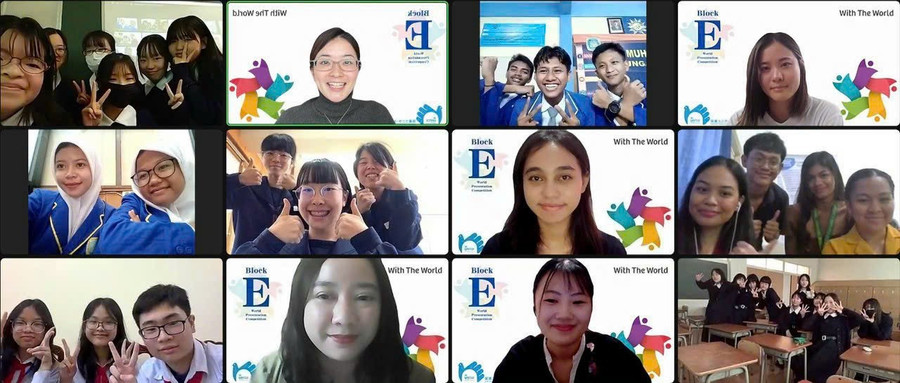
Along with that, Ninh Binh also promotes the cross-border lesson model, connecting with schools in many countries.
Ms. Nguyen Thi Thanh Hoa, English teacher at Tran Bich San Secondary School (Nam Dinh, Ninh Binh) said: “Through cross-border lessons, students are trained the most in listening and speaking skills, and are more confident in communication. Online lessons have created a vibrant space where students from different countries come together to explore new knowledge, practice skills and expand their understanding of culture.”
In addition to technology, the province also encourages socialization to invite foreign teachers to teach. This method not only improves students' practical communication skills, but also helps Vietnamese teachers learn more about modern methods, creating international integration right in the classroom.
Not stopping at situational innovations, Ninh Binh has determined a strategic goal: to make English the second language in general schools. This is a long-term step, requiring investment in facilities, curriculum and teaching staff.
Ms. Hoang Thi Minh Nguyet, Principal of Tran Bich San Secondary School (Nam Dinh, Ninh Binh) emphasized: “Resolution 71 not only provides a legal framework but also creates conditions for students to use English more confidently in their studies and life. When the school is given financial autonomy, we can invest in smart foreign language classrooms, enhance teacher training and organize many international exchange activities – things that were very difficult before.”
In reality, despite many difficulties, especially the difference in infrastructure between favorable and disadvantaged areas, Ninh Binh has known how to take advantage of the flexible financial mechanism from Resolution 71 to mobilize socialized resources in combination with the state budget.
Many schools have boldly invested in smart foreign language classrooms, interactive boards, and online software, helping students experience a modern learning environment. Teachers have more opportunities to participate in advanced training courses, and students have many international playgrounds to challenge and mature.
With a strategic vision, Ninh Binh education sector considers English as the key to opening the door to integration for the young generation. When the financial mechanism is innovated and resources are mobilized synchronously, the path to making English the second language in general schools will not be far away.
Source: https://giaoducthoidai.vn/day-tieng-anh-pho-thong-truoc-co-hoi-lon-tu-nghi-quyet-71-post748980.html






![[Photo] Deep sea sand deposits, ancient wooden ship An Bang faces the risk of being buried again](https://vphoto.vietnam.vn/thumb/1200x675/vietnam/resource/IMAGE/2025/11/13/1763033175715_ndo_br_thuyen-1-jpg.webp)

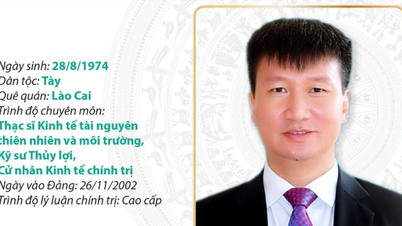



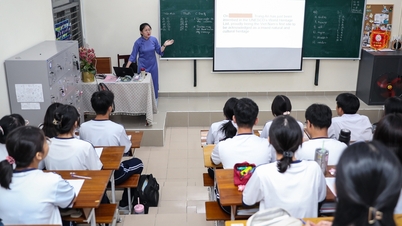







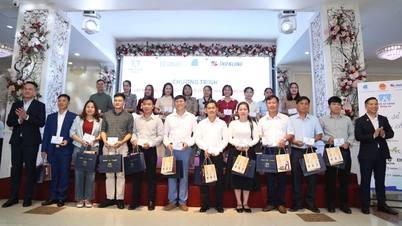

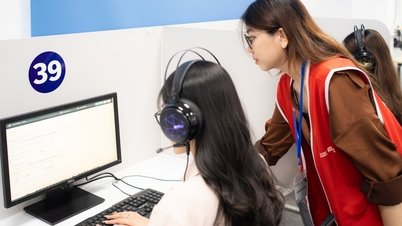
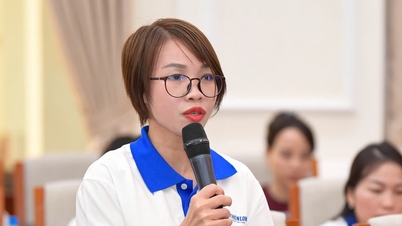




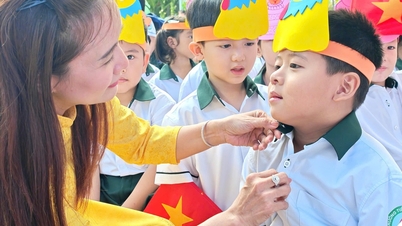




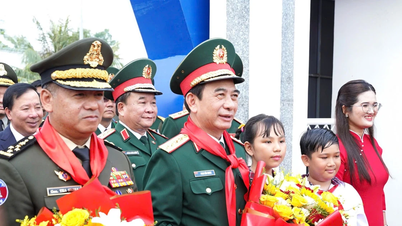
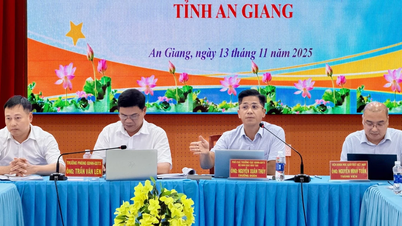
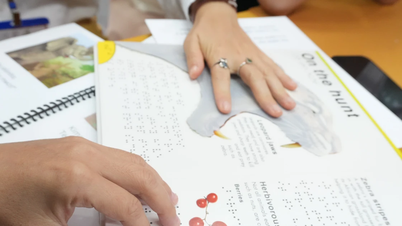


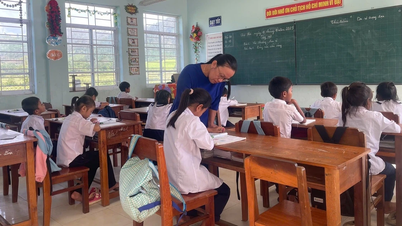
































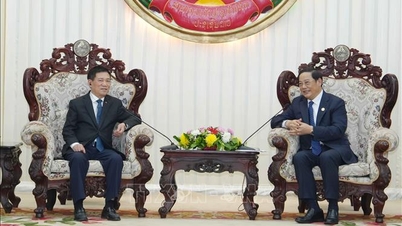







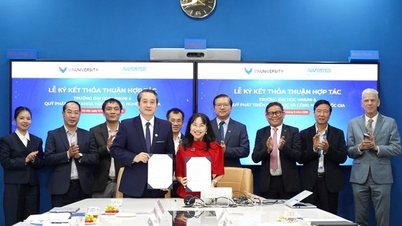

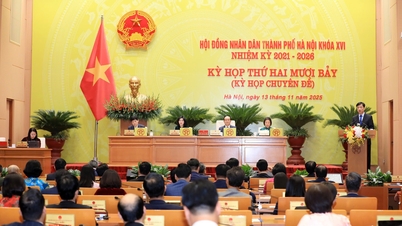

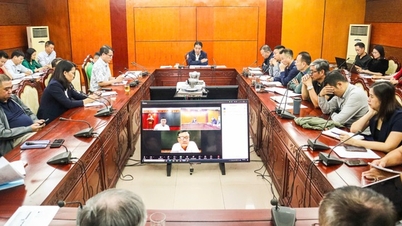

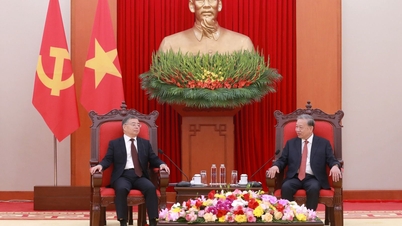
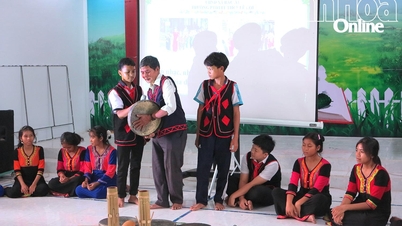




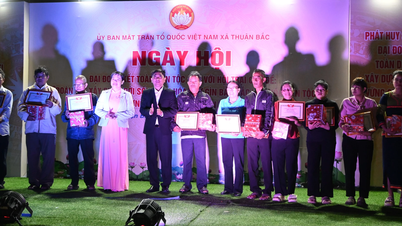
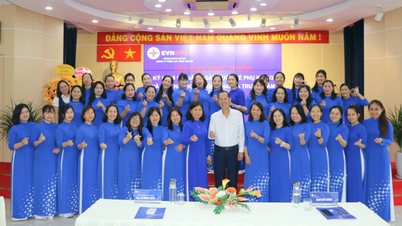
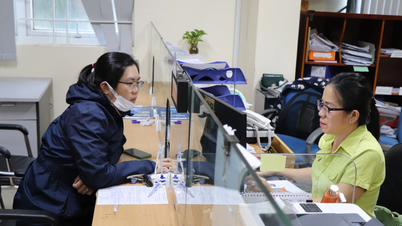





![Dong Nai OCOP transition: [Article 3] Linking tourism with OCOP product consumption](https://vphoto.vietnam.vn/thumb/402x226/vietnam/resource/IMAGE/2025/11/10/1762739199309_1324-2740-7_n-162543_981.jpeg)







Comment (0)